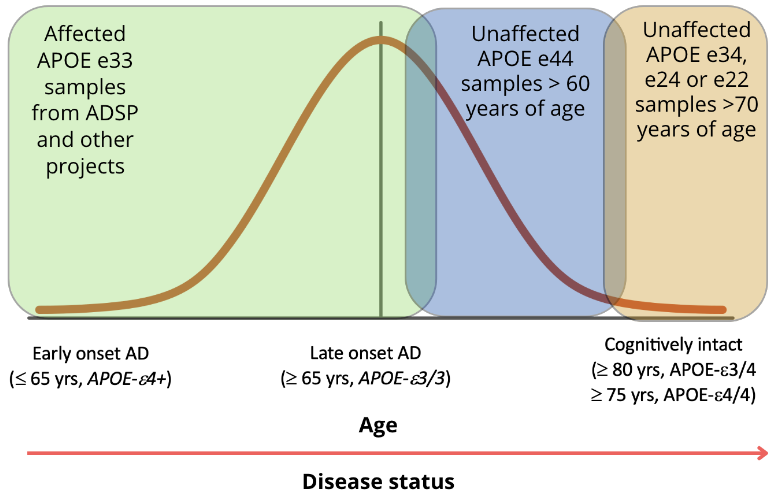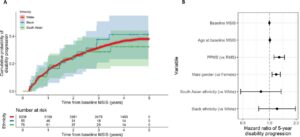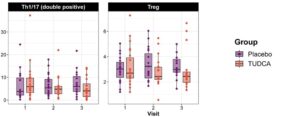“Rare genetic variation in Fibronectin 1 (FN1) protects against APOEe4 in Alzheimer’s disease.”
Prabesh Bhattarai, et al. – Columbia University.

Background: While APOE4 sharply increases the risk of AD, some homozygous APOE4 carriers remain cognitively intact. These carriers may have genetic resilience factors that provide insight into AD pathology.
This Study: Bhattarai and colleagues used whole-genome sequencing data from 3,578 subjects to identify rare genetic variants present in healthy APOE4 homozygous carriers, but not in carriers with AD.
- Among APOE4 homozygous carriers, two variants for the fibronectin-1 (FN1) gene were exclusively found in healthy individuals. Molecular modeling predicted that these variants induce a loss of function.
- APOE4/4 individuals with AD had increased deposition of FN1 in brain blood vessels compared to both APOE3/3 individuals with AD and cognitively intact APOE4/4 individuals, suggesting that FN1 deposition mediates AD risk conferred by APOE4.
- In an animal model, loss of the zebrafish homolog of FN1 reduced the toxic gliovascular response to amyloid-β 42 (Aβ42).
Bottom Line: FN1 deposition in brain blood vessels is a key feature of APOE4/4 individuals with AD that should be a target for future therapies.
Open Question: Could other AD risk factors also increase FN1 deposition, albeit not as dramatically as APOE4? Comparing FN1 deposition in healthy and AD subjects among APOE3/3 individuals would provide insight into how universal a process this may be in AD.




